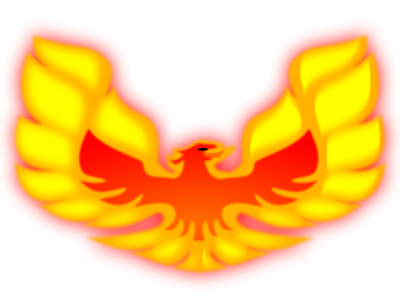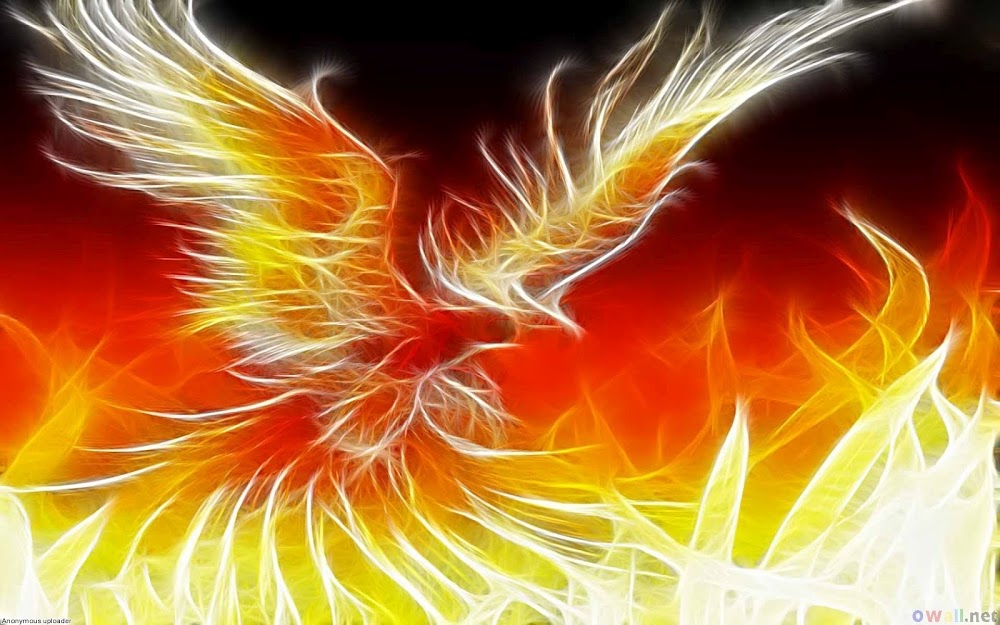- Jan 25, 2009
- 19,765
- 1,428
- Faith
- Oriental Orthodox
- Marital Status
- Private
- Politics
- US-Others
Shalom 
I love studying biology - especially the world of the avian kingdom. Birds have been some of the most adaptable creatures in all of creation - especially when it comes to migration...and because of how birds had the evolutionary ability to adapt as they did, they were often able to survive in places other species could not. They were also glorified in various cultures for their skills.
One such bird that comes to mind and has been on my mind is the Phoenix...a creature that has been discussed in various cultures around the world.
The Phoenix is the stuff of legend - but imagine if there really was such a colourful bird which was several times bigger than an eagle and it was only one of its kind - a lonely bird -only one and and seen once in a lifetime
Reading on it today when studying a book on the issue of birds/their adaptability, I found where some have said that Egyptian phoenix, or bennu, was based on the concept of the Purple Heron. And historically, legendary birds around the world are often linked to the phoenix, including “phoenix counterparts” such as the Persian Simurg, Chinese Feng Huang, and Russian firebird (Zhar-ptitsa). More specifically, these birds arose from their own local folklore. In example, it has been the case that Swarthmore Professor of Russian Sibelan Forrester says Slavic lore hosts two mythical birds, the traditional firebird (star of Stravinsky’s ballet) and Finist the Bright Falcon, whose name is derived from the Greek phoenix. Additionally, the Chinese phoenix Feng Huang (Ho-o in Japan) is a completely separate bird dating back at least 7,000 years...but this celestial fowl became entwined with the Western phoenix through Scottish sinologist James Legge, who translated Chinese classics in the 1800s. -
Nonetheless, despite all of that, I wonder. In wondering on the issue, I went online and found it interesting to consider the ways in which the Phoenix was considered to be something that was well-known within the ancient world....
Seeing the ways others tried to take the imagery of Phoenix and make it a bad one due to how it seemed abused, I was a bit uncomfortable when the concept came to my mind in certain respects ...until I did more research....and I actually saw what others within the early church felt on the issue. In example, it shocked me to see how Clement of Rome was the first Christian to connect the phoenix with that of Christ's resurrection:
I never realized how a symbol such as the Phoenix could symbolize the power of the resurrection and what is promised to those who wake up:..in regards to apotheosis:

What shocked me even more, however, was that it seems there were others who have long felt that scripture has actually mentioned the concept of Phoenix before anything in the early church:As seen in Job 29:18: “Then I thought, ‘I shall die in my nest, and I shall multiply my days like the Phoenix.’” The translation of the Hebrew word KHOL has two meanings. And many translations say ‘sand’ but it can also be translated ‘phoenix bird.’
Others have felt that Clement's idea that the phoenix dies and its nest and the returns for a length of days has its origin here...if checking out Barnes' Notes on the Bible
Additionally, as another source said best (for brief excerpt) on the subject:


Again, alot of the things I've been learning of late have been rather fascinating. And part of me has been wondering whether or not it's possible that the bird was indeed a REAL bird---on the same level as something such as a Levithan , a creature noted to be apart of the Lord's fearsome works( Psalm 104:4, Job 41:1-3 / Job 41, Psalm 74:13-15 /Psalm 74 , Isaiah 27:1-3 , etc )--or other possible creatures such as Dragons and other animals of legend
Who knows...
Does anyone here feel that evolution would've allowed for a creature such as the Phoenix to be in existence? For those that do not believe in Evolution, do you believe that such a creature was ever created by the Lord at any point? Or do you feel that such creatures are simply myths? Whatever your thoughts, would love to hear sometime
I love studying biology - especially the world of the avian kingdom. Birds have been some of the most adaptable creatures in all of creation - especially when it comes to migration...and because of how birds had the evolutionary ability to adapt as they did, they were often able to survive in places other species could not. They were also glorified in various cultures for their skills.
One such bird that comes to mind and has been on my mind is the Phoenix...a creature that has been discussed in various cultures around the world.
The Phoenix is the stuff of legend - but imagine if there really was such a colourful bird which was several times bigger than an eagle and it was only one of its kind - a lonely bird -only one and and seen once in a lifetime
Reading on it today when studying a book on the issue of birds/their adaptability, I found where some have said that Egyptian phoenix, or bennu, was based on the concept of the Purple Heron. And historically, legendary birds around the world are often linked to the phoenix, including “phoenix counterparts” such as the Persian Simurg, Chinese Feng Huang, and Russian firebird (Zhar-ptitsa). More specifically, these birds arose from their own local folklore. In example, it has been the case that Swarthmore Professor of Russian Sibelan Forrester says Slavic lore hosts two mythical birds, the traditional firebird (star of Stravinsky’s ballet) and Finist the Bright Falcon, whose name is derived from the Greek phoenix. Additionally, the Chinese phoenix Feng Huang (Ho-o in Japan) is a completely separate bird dating back at least 7,000 years...but this celestial fowl became entwined with the Western phoenix through Scottish sinologist James Legge, who translated Chinese classics in the 1800s. -
Nonetheless, despite all of that, I wonder. In wondering on the issue, I went online and found it interesting to consider the ways in which the Phoenix was considered to be something that was well-known within the ancient world....
Seeing the ways others tried to take the imagery of Phoenix and make it a bad one due to how it seemed abused, I was a bit uncomfortable when the concept came to my mind in certain respects ...until I did more research....and I actually saw what others within the early church felt on the issue. In example, it shocked me to see how Clement of Rome was the first Christian to connect the phoenix with that of Christ's resurrection:
Let us consider that wonderful sign [of the resurrection] which takes place in Eastern lands, that is, in Arabia and the countries round about. There is a certain bird which is called a phoenix. This is the only one of its kind, and lives five hundred years. And when the time of its dissolution draws near that it must die, it builds itself a nest of frankincense, and myrrh, and other spices, into which, when the time is fulfilled, it enters and dies. But as the flesh decays a certain kind of worm is produced, which, being nourished by the juices of the dead bird, brings forth feathers. Then, when it has acquired strength, it takes up that nest in which are the bones of its parent, and bearing these it passes from the land of Arabia into Egypt, to the city called Heliopolis. And, in open day, flying in the sight of all men, it places them on the altar of the sun, and having done this, hastens back to its former abode. The priests then inspect the registers of the dates, and find that it has returned exactly as the five hundredth year was completed.
Do we then deem it any great and wonderful thing for the Maker of all things to raise up again those that have piously served Him in the assurance of a good faith, when even by a bird He shows us the mightiness of His power to fulfil His promise? For [the Scripture] saith in a certain place, "Thou shalt raise me up, and I shall confess unto Thee; " and again, "I laid me down, and slept; I awaked, because Thou art with me; " and again, Job says, "Thou shalt raise up this flesh of mine, which has suffered all these things." (The First Epistle of Clement to the Corinthians, chapters XXV-XXVI).

In Christian theology, what I had seen in what Clement of Rome stated in the First Epistle of Clement to the Corinthians is very amazing. And from a modern perspective, C.S. Lewis used the phoenix in his Chronicles of Narnia series in The Magician's Nephew and The Last Battle. .Do we then deem it any great and wonderful thing for the Maker of all things to raise up again those that have piously served Him in the assurance of a good faith, when even by a bird He shows us the mightiness of His power to fulfil His promise? For [the Scripture] saith in a certain place, "Thou shalt raise me up, and I shall confess unto Thee; " and again, "I laid me down, and slept; I awaked, because Thou art with me; " and again, Job says, "Thou shalt raise up this flesh of mine, which has suffered all these things." (The First Epistle of Clement to the Corinthians, chapters XXV-XXVI).

I never realized how a symbol such as the Phoenix could symbolize the power of the resurrection and what is promised to those who wake up:..in regards to apotheosis:
Awake, awake O sleeper,
Arise from the dead,
and Christ will shine on you. (Ephesians 5:14)
Job 29:18
I thought, 'I will die in my own house, my days as numerous as the grains of sand.
Others have felt that Clement's idea that the phoenix dies and its nest and the returns for a length of days has its origin here...if checking out Barnes' Notes on the Bible
Additionally, as another source said best (for brief excerpt) on the subject:
The Hebrew translation is debated. The Hebrew word chol is typically translated in one of three different ways:
1. sand
2. phoenix, as in the mythical bird
3. palm tree
In nearly every context, the Hebrew word chol means "sand." We should expect then that to be the Jewish interpretation. But instead, the post-Christian rabbis have almost unanimously interpreted the passage in Job as referring to the mythical bird, the phoenix. The midrashic document the Genesis Rabba or Bereshit Rabba (19:5) explains that Eve “gave the cattle, beasts, and birds to eat of [the forbidden fruit]. All obeyed her and ate thereof, except a certain bird named chol, as it is written, “Then I said: I shall die with my nest, and I shall multiply my days as the chol.” (Job 29:18). The Genesis Rabba was composed no later than A.D. 450. From this point on, Jewish rabbinical scholars (e.g. Rashi) simply assume that Job 29:18 is speaking of the phoenix bird that is able to rise from the ashes. In fact, if you consult almost any Jewish translation of Job, you will find that Job 29:18 has been translated as referring to the "phoenix" and not "sand."The Septuagint oddly presents the Hebrew word chol as with the Greek word phoinikos, which technically refers to the palm tree. Yet it is very close to the Greek word phoinix or "phoenix." Some believe that the original word of Job 29:18 in the Septuagint tradition was in fact "phoenix." St. Clement in 1 Clement likely had Job 29:18 in mind because he quotes Job just after describing his chapter on the phoenix (25). He does not quote the Job 29:18 passage directly, but still Clement quotes Job to prove the long expected hope of the resurrection. It is not surprising then to conclude that St. Clement's phoenix sermon illustration for the resurrection of the dead also has its origins in Job2. phoenix, as in the mythical bird
3. palm tree


Who knows...
Does anyone here feel that evolution would've allowed for a creature such as the Phoenix to be in existence? For those that do not believe in Evolution, do you believe that such a creature was ever created by the Lord at any point? Or do you feel that such creatures are simply myths? Whatever your thoughts, would love to hear sometime
Last edited:








